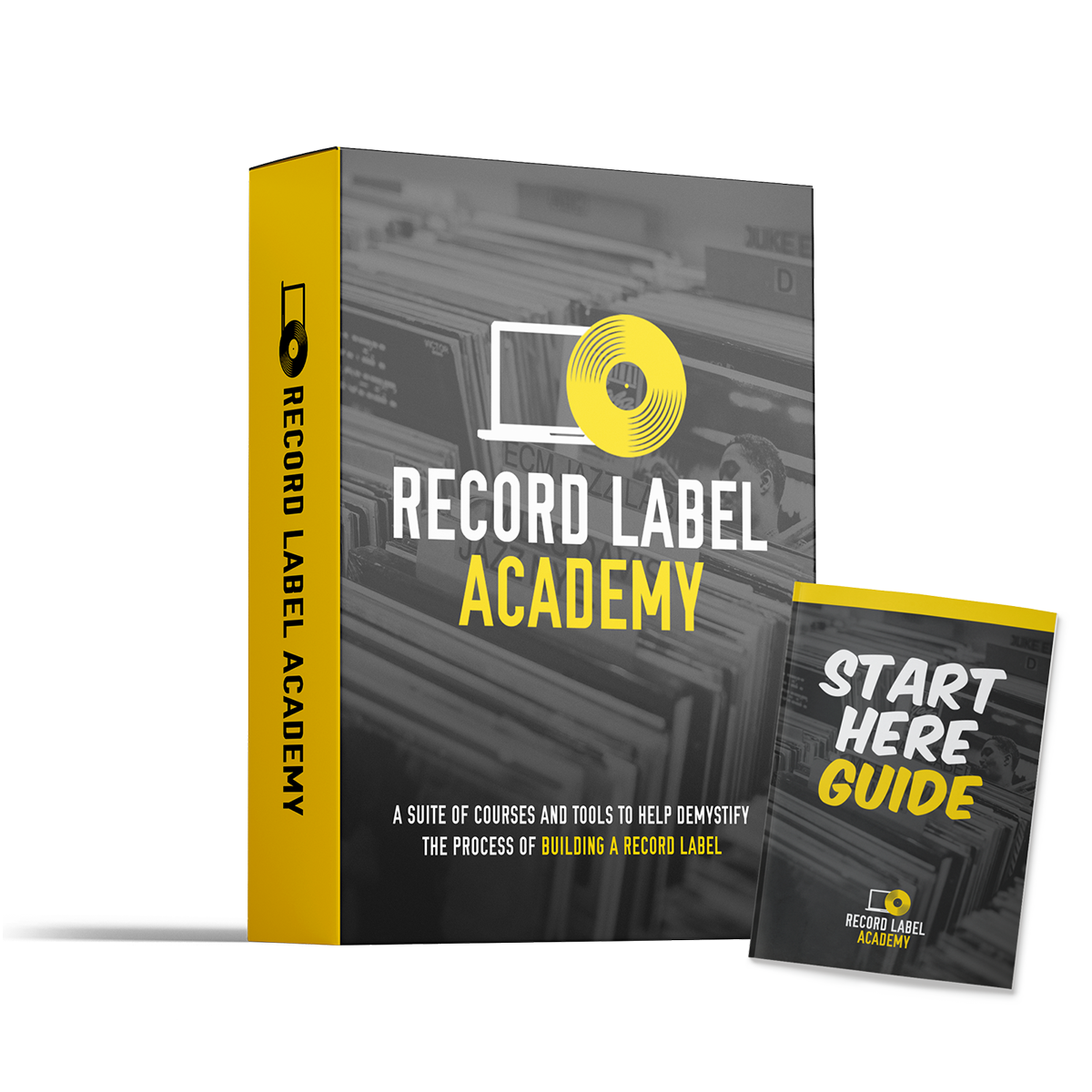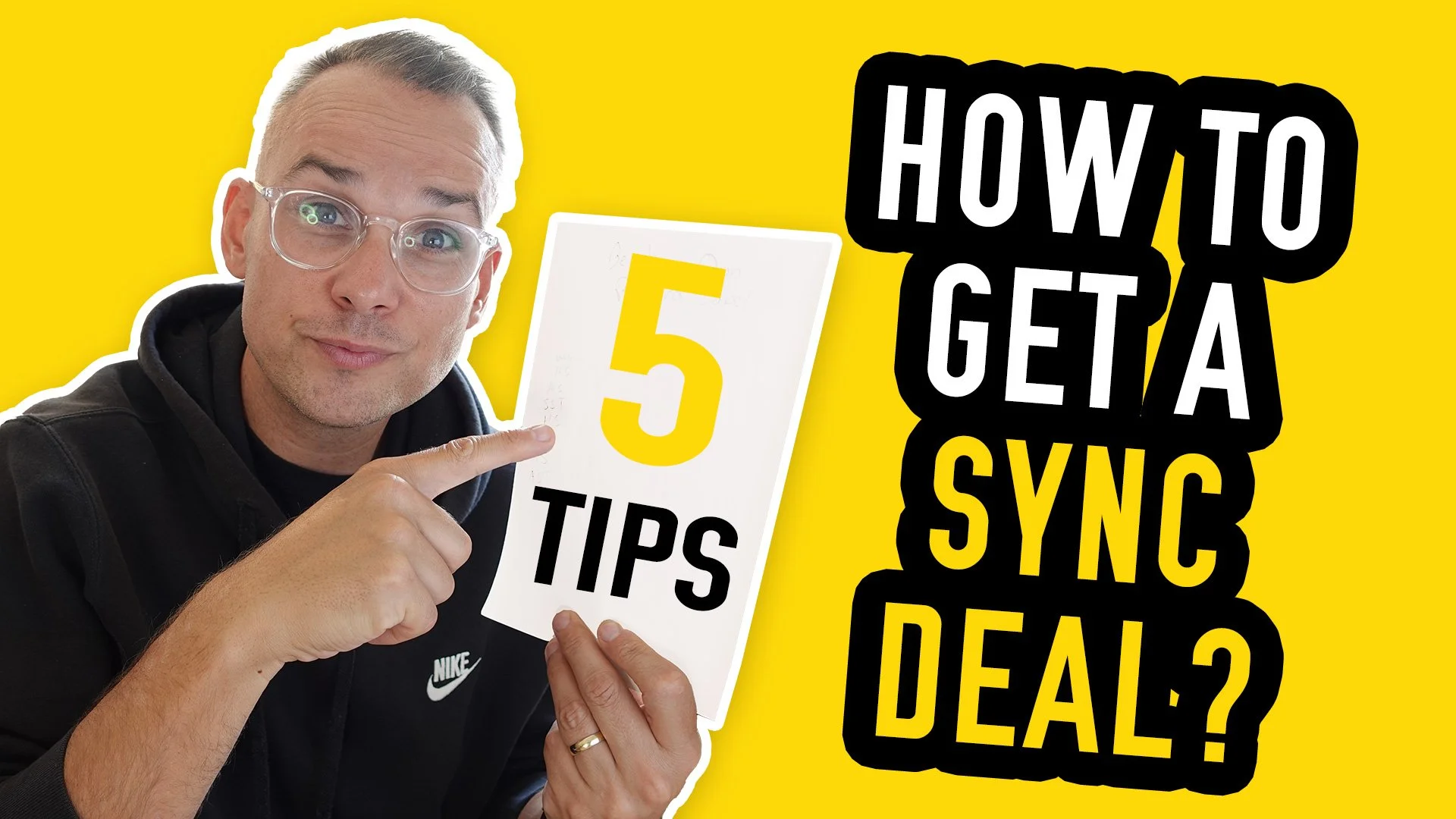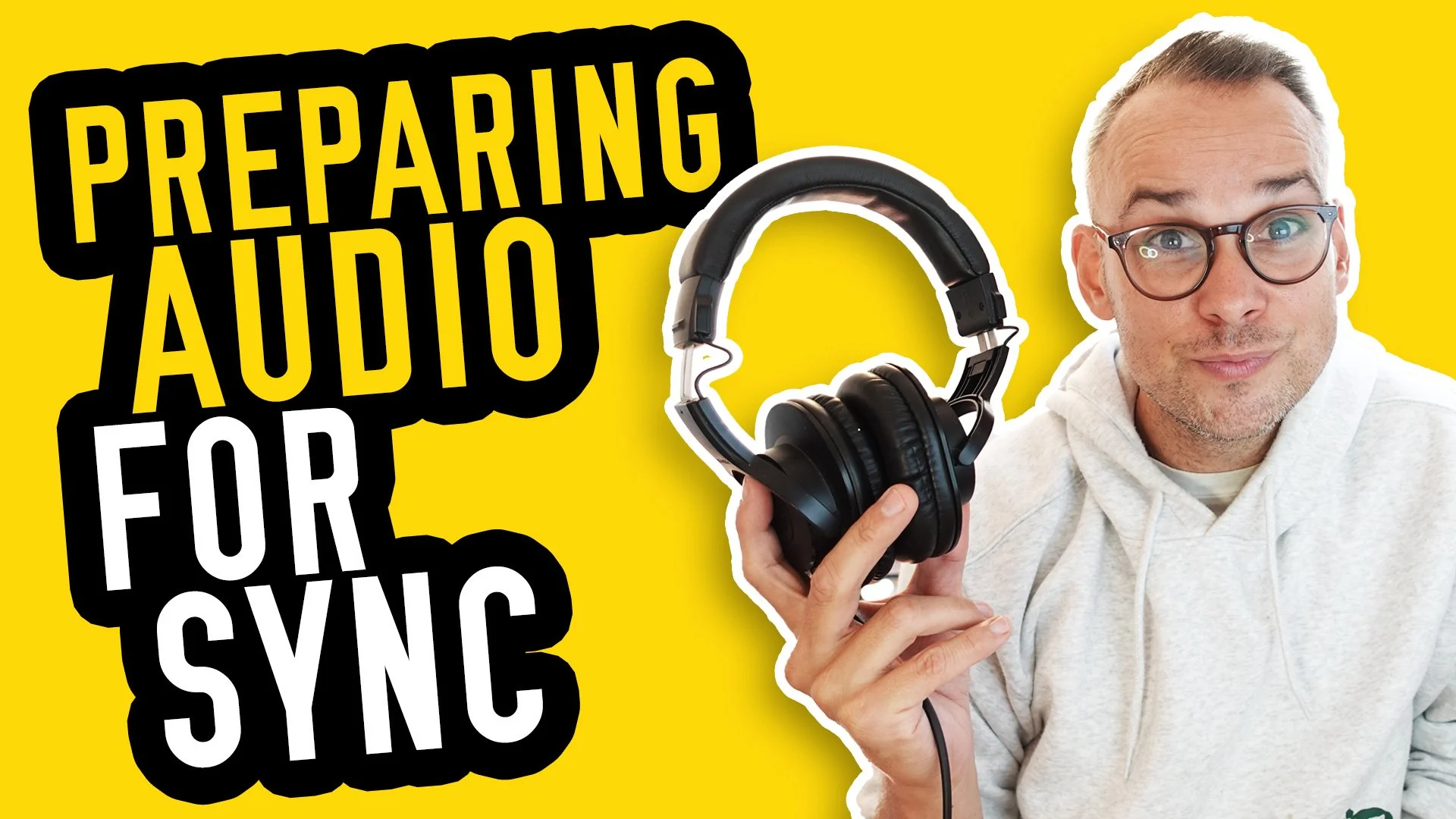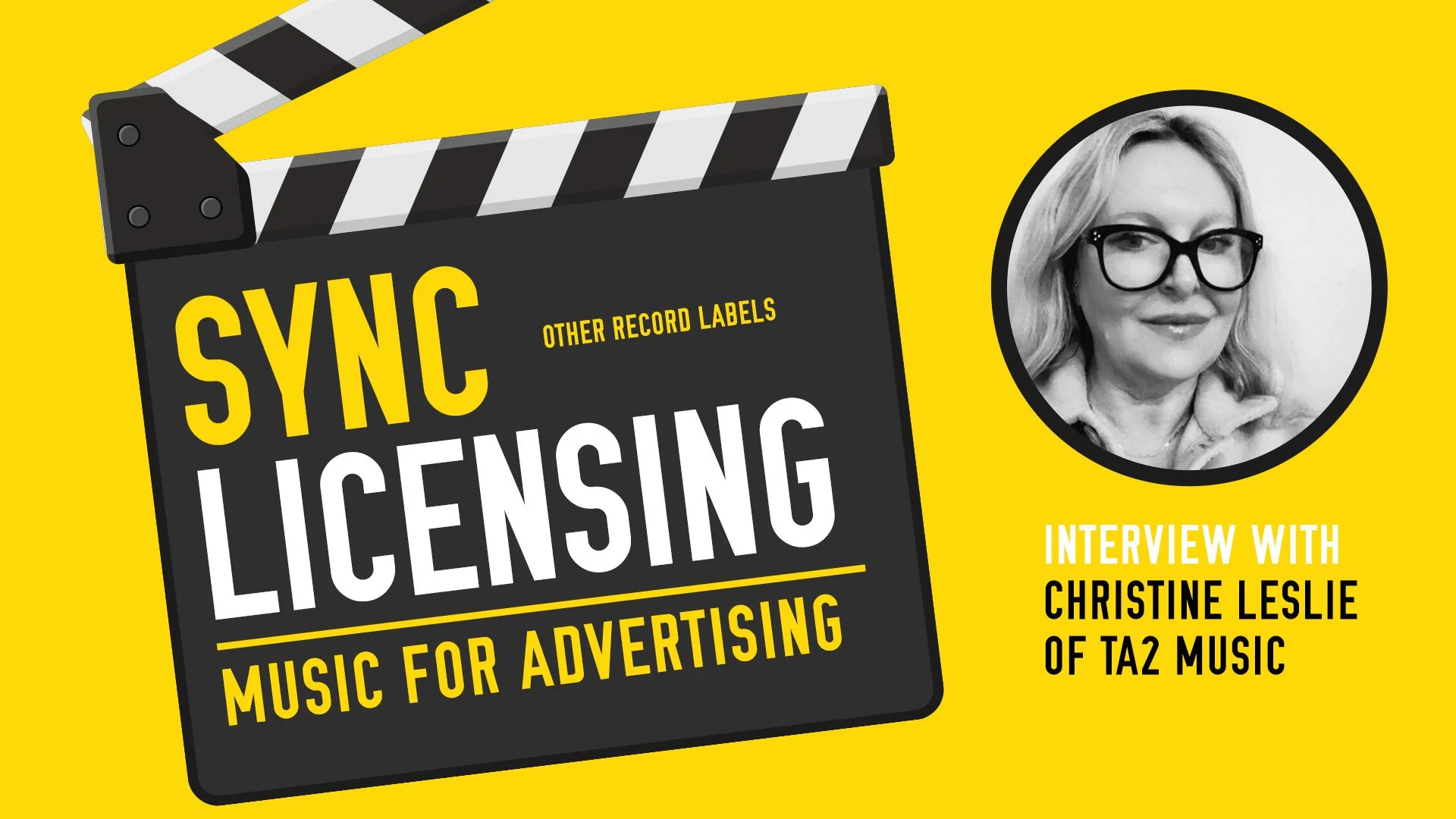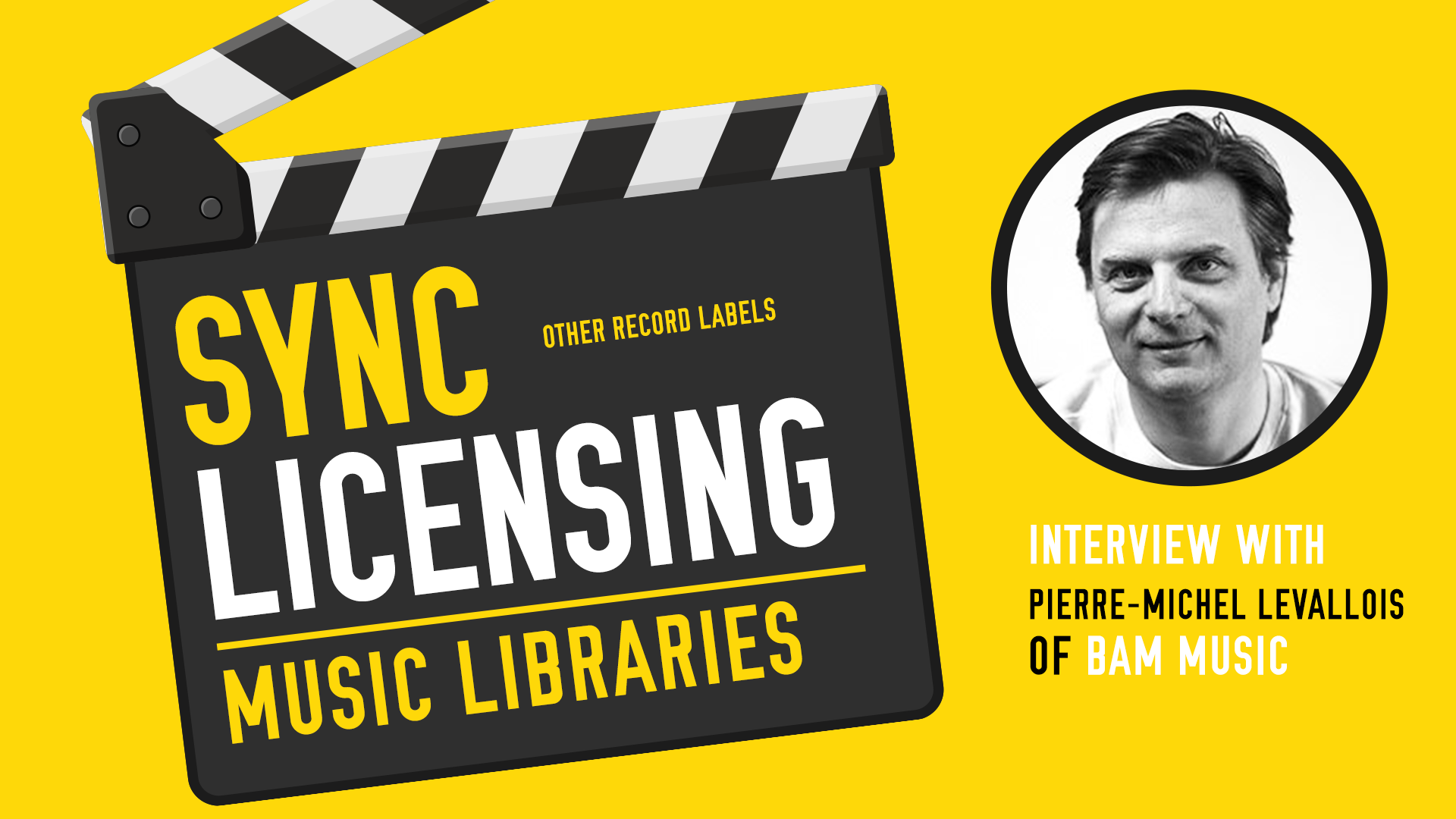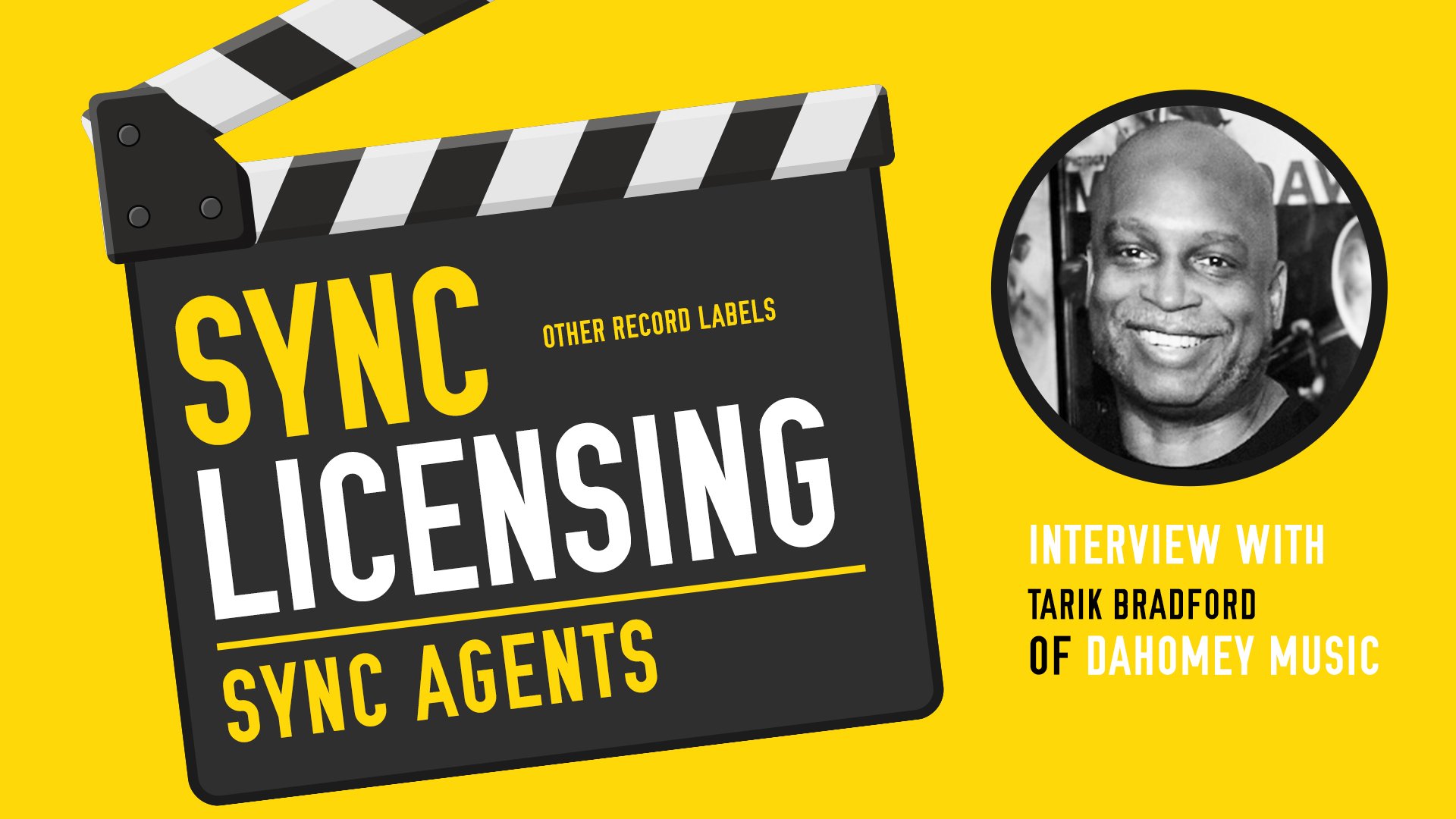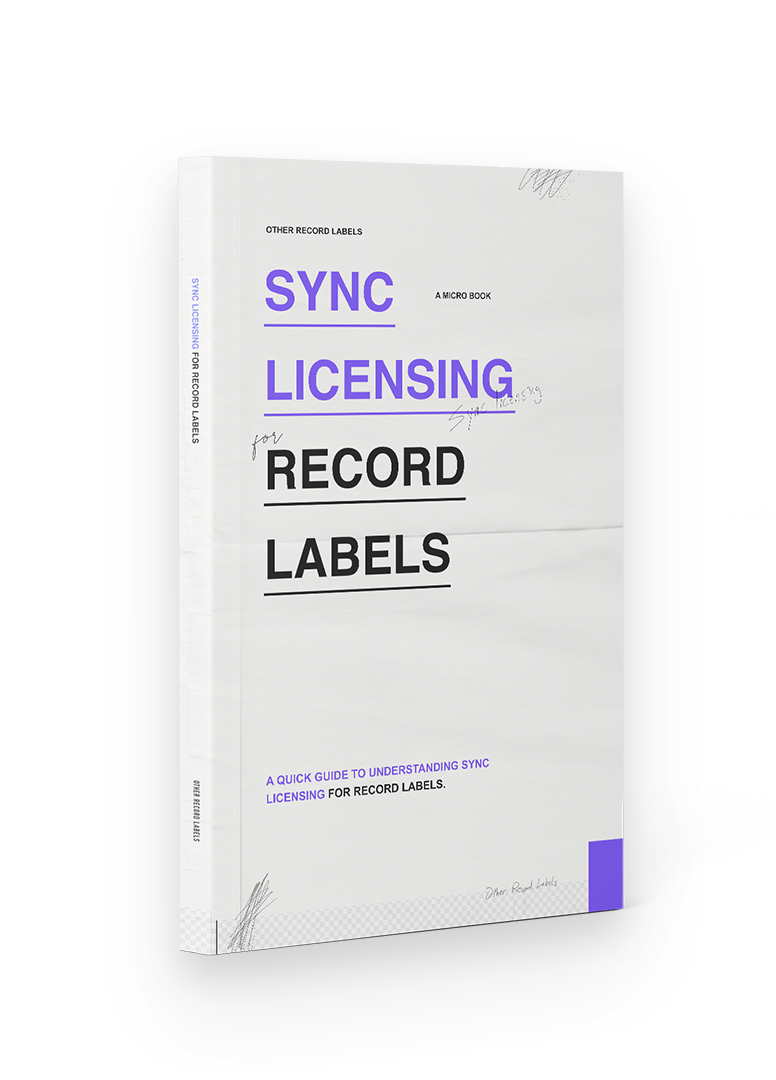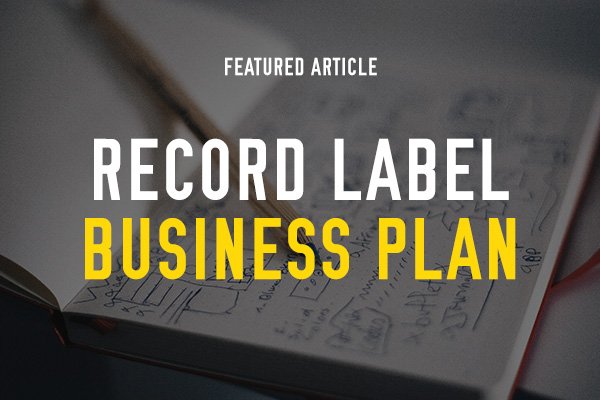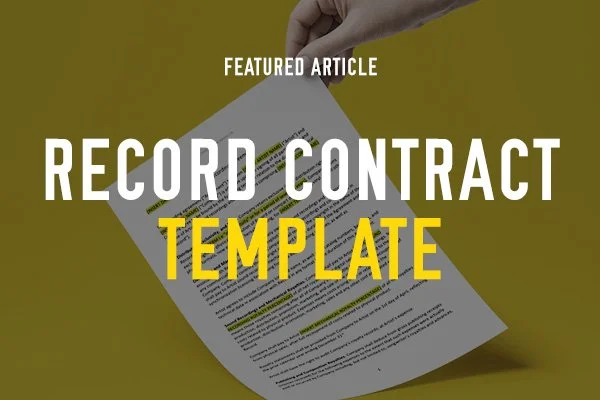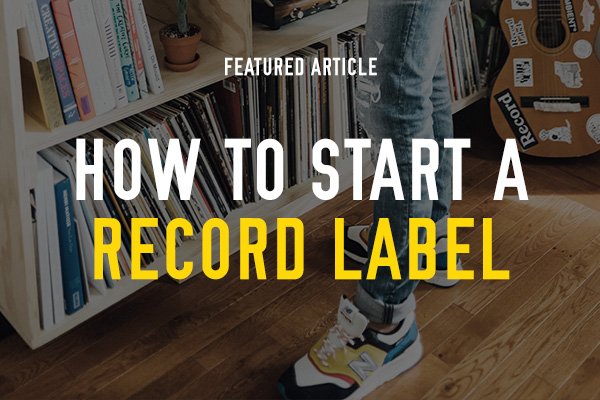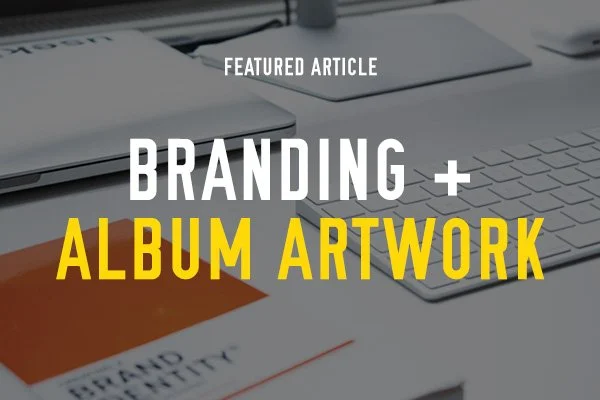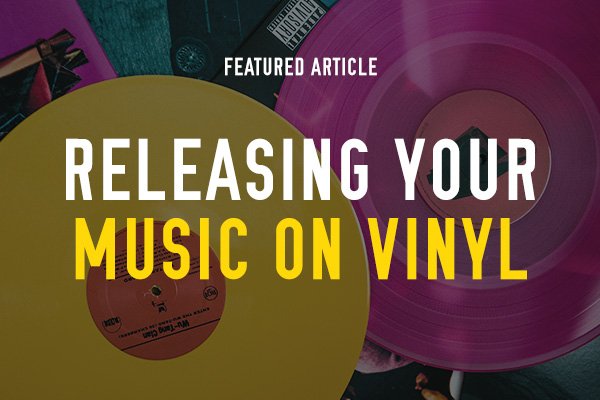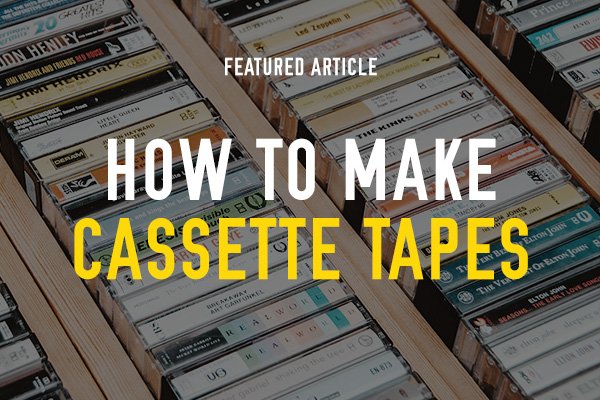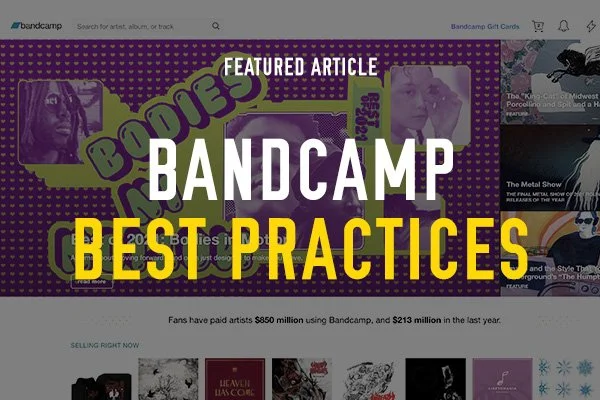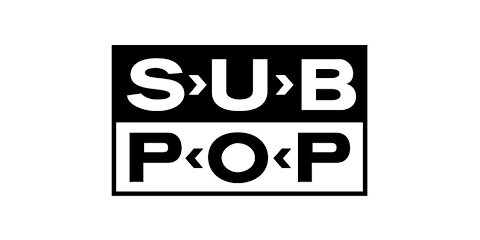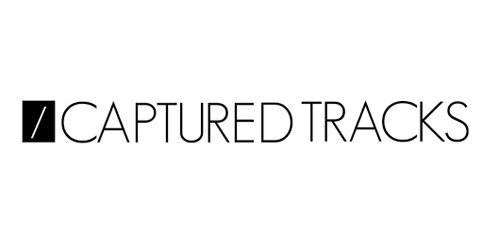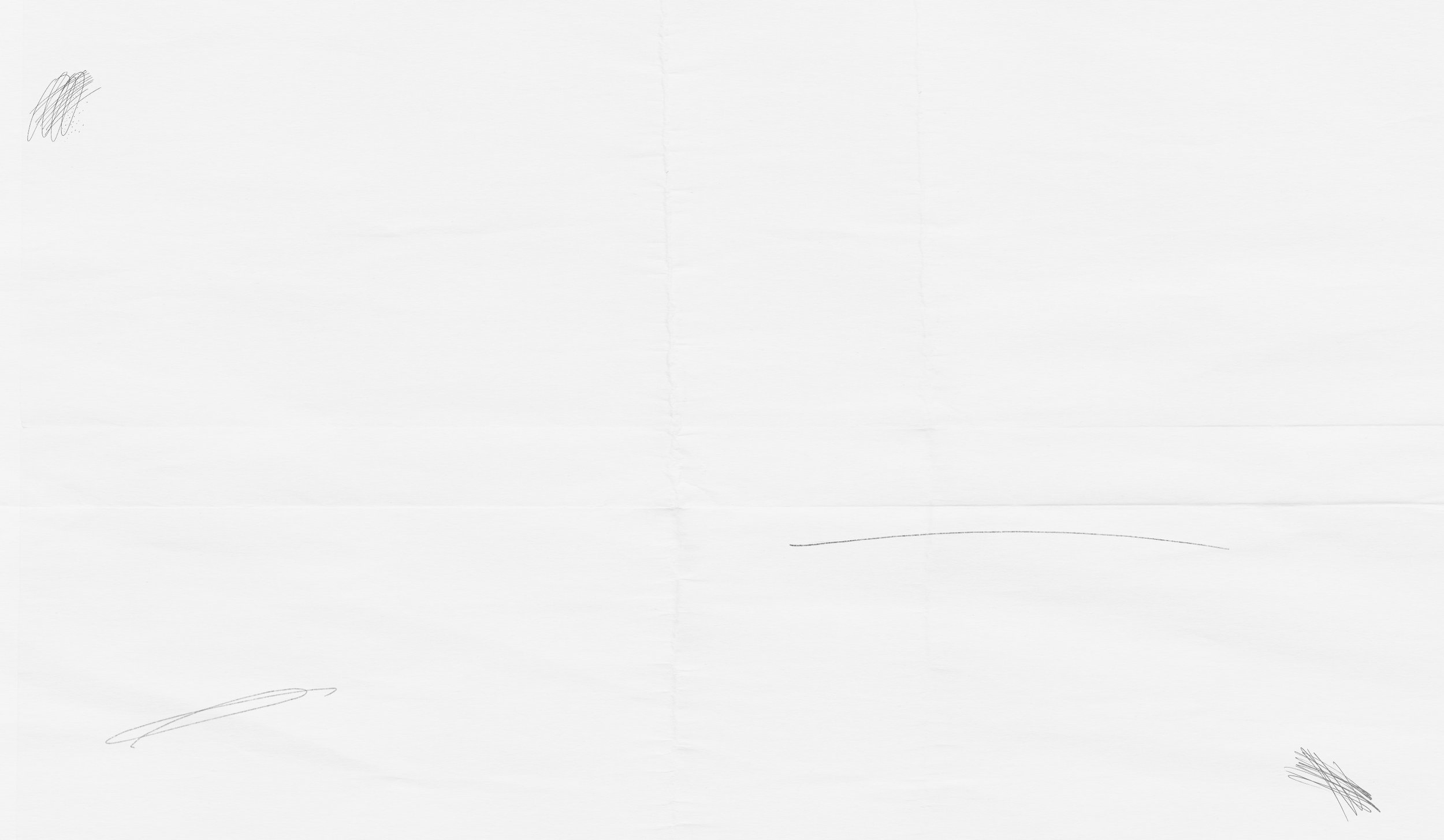
Sync Licensing
for Record Labels.
A guide to understanding the world of music licensing.
Including interviews, FAQs, free templates, checklists, and more!
I understand that many people are interested in the world of sync licensing, but it can be a challenging space to navigate, especially for beginners.
If you're just starting out, you're likely to have many questions about how the process works, what to do, and what to avoid.
Fortunately, I’m here to help. In this article, I’ll provide you with a comprehensive beginner's guide to sync licensing, including tips and tricks of the trade.
What is Sync Licensing?
Sync licensing is the process of licensing music for use in TV shows, movies, commercials, video games, and other forms of media. When a music supervisor or other professional in the industry is looking for music to use in a project, they may turn to a music library or licensing agency to find the perfect track. The process of sync licensing involves negotiating the terms of the license, which can include factors such as the length of the license, the territory in which the music can be used, and the amount of money that will be paid for the license.
How to Get Started in Sync Licensing
If you're interested in getting started in sync licensing, there are a few things you can do to get started. First, you'll need to create a portfolio of your music. This should include both finished tracks and work-in-progress pieces that showcase your style and ability as a composer or producer. You'll also need to create a professional website or online profile that showcases your work and provides potential clients with a way to contact you.
Once you have a portfolio of music and a professional online presence, you can start submitting your music to music libraries and licensing agencies. These companies will review your work and determine whether or not it's a good fit for their catalog. If your music is accepted, it will be added to their catalog and made available to potential clients.
Tips and Tricks for Successful Sync Licensing
There are many factors that can contribute to a successful sync licensing career. Here are a few tips and tricks to keep in mind:
Know Your Market: Before you start submitting your music to music libraries and licensing agencies, it's important to know your market. Research the types of projects that are being produced in your genre and style, and make sure that your music is a good fit for those projects.
Focus on Quality: In the world of sync licensing, quality is king. Make sure that your music is professionally produced and recorded, and that it stands out from the crowd.
Be Persistent: The process of sync licensing can be challenging and time-consuming, but don't give up. Keep submitting your music to potential clients, and be persistent in your efforts to land new projects.
Network: Networking is an essential part of any career in the music industry. Attend industry events, join online communities, and connect with other professionals in the industry.

Download My FREE Guide to Sync Licensing for Record Labels...

RECORD LABEL
ACADEMY
The Complete A to Z of Building and Growing an Independent Record Label.

How to get a sync deal…
In this episode, we talk about why you should be thinking about sync all the time; why it’s important to highlight your label’s niche, and how to build your sync licensing network!

Preparing your audio for sync…
In this episode, I talk about a few ways to help you keep your record label’s catalog organized, and ready to be licensed!
How to get a sync deal…
In this episode, we talk about why you should be thinking about sync all the time; why it’s important to highlight your label’s niche, and how to build your sync licensing network!

The 3 Types of Sync Licensing
Here are the 3 most common ways your music can be licensed…
1. Getting Your Music on TV
The most common way music is licensed is when it is to be used in a movie or on a TV show. This is often the types of placements that most artists and record labels wish to land! Getting your song on a hot new Netflix show or HBO series can be incredibly lucrative in fees and exposure!
You need to get your music in front of a music supervisor if you want to land a sync deal on a TV show or in a movie. You can find out who the music supervisor is for most productions by checking out Tunefind.com.
Ultimately, the best way to get your music heard by music supervisors is to build relationships over the long term. Don’t pester them or annoy them, be attentive to their needs and respond quickly. Attend conferences and workshops, and build a trusting relationship over time!
2. Getting Your Music in a Commercial
Another extremely lucrative sync opportunity is having your music used in a commercial. This could be traditional TV ads, as well as online advertisements that play before videos on YouTube.
Music used in advertising is usually chosen by ad agencies and their production houses. In some cases, music is composed and recorded specifically for the spot. This reality makes it harder for emerging artists and record labels to get a spot on a commercial.
Regardless, start to submit a sampling of your record label’s catalog to local ad agencies. Be specific about your genre, and what your artists can offer. Let them know what “stems” and instrumentals you have available. And be sure to assure them that the songs you are submitting are “cleared” (you have the permission to license for both the masters and publishing).
3. Getting Your Music in a Music Library
A music library is generally an e-commerce platform where artists and labels list their catalog to be used in a variety of video productions. These productions can include documentaries, video games, YouTube videos, filmmakers, and wedding videographers.
Examples of music libraries can include MusicBed, BAM, and Epidemic Sound. Some platforms are invite-only and some require exclusivity, which means you can’t list these songs on other music libraries or through other sync agents.
It might be best to spend a day organizing your song catalog; identifying the tempo, key, and instruments used on each track. Create a spreadsheet with facts about your most sync-friendly songs. Make a one-page presentation on Squarespace to present a sampling of your record label’s catalog. Include press photos of your artists, streaming audio samples, and a short bio of your artists’s activities and accolades.

Music in Advertising [Interview]
In this episode, I interview Christine Leslie, a music supervisor for TA2 in Toronto.
We talk about the unique requirements of music used in advertising and commercials!
Music Libraries [Interview]
In this episode, I interview Pierre-Michelle Levallois of BAM Music.
We chat all about how artists and record labels can find success by submitting to a music library and creating bespoke music for sync licensing.
Sync Agents [Interview]
In today’s interview I speak with LA sync agent, Tarik Bradford.
We talk about the recent Kate Bush placement, how to find a sync agent to represent your record label’s catalog, plus we talk about the importance of watching the shows you are pitching your music for!
Music Supervisors [Interview]
In this episode, I interview Julian Drucker, a music supervisor has worked on shows like The Shrink Next Door, Handmaid's Tale, The Politician, Love Island, and more!
We talk about how often music supervisors go for unknown indie artists vs. major artists; how artists and labels should prepare for sync licensing; whether he accepts submissions from artists directly; and more helpful topics!

Sync Licensing FAQs
What is a “sync”?
A synchronization license (also known as a “sync” or “synch”) is granted by the owner or composer of a particular work.
The license grants the purchaser the right to use a piece of music in such audiovisual works as a movie, video game, or commercial.
Do my songs need to sound professional to get a sync?
Not necessarily, yet a hi-fi track can sound great when used in a HD TV show or movie. Having said that, uniqueness is more important than perfection.
Some pitches are looking for something lo-fi, grainy, non-mainstream. So don’t discount your tracks because they aren’t professionally recorded. Make your quirks part of your brand, and then find the music libraries or supervisors who are looking for your style.
What is the difference between a non-exclusive deal and an exclusive deal?
Some music libraries will request that they are the only ones who can represent your songs. This generally earns you a higher royalty rate as well as ensures that the agency will work harder to pitch your track.
But this isn’t always the case, so be sure they are a reputable organization before you sign an exclusive representation contract.
A lot of online licensing websites offer “non-exclusive” deals, which means that you can list the same track on other similar websites.
How much should I expect to make in a year from music licensing?
Music licensing is a long game for both artists and independent record labels alike. Keep your expectations grounded in the fact that it may take months, if not years, to build relationships with music supervisors, production houses, and ad agencies.
Just like in any business, a successful approach to making money through sync licensing will come from having multiple revenue streams.
A successful career in sync licensing can take up to a year or more to set up a handful of key revenue streams that can total anywhere from $1000 to $100,000 per year!
What file format should I send to a music supervisor?
DO NOT attach any audio files to an email. This will overload your music supervisor’s inbox and ensure your email is sent to spam or deleted. Instead, provide a SoundCloud link that includes a playlist of your best songs.
As a bonus, it can be helpful if you also provide a separate location for where the MP3s are (neatly) stored for easy download.
What is a music supervisor?
A music supervisor is the industry professional that is responsible for discovering music to be used for a given project (TV show, movie, app, video game, etc).
Music supervisors act as a bridge between the artist/publisher/record label and the director/editor/ad agency.

Building a record label shouldn’t be a mystery.
I hope I can provide you with as many amazing tools as possible to help you launch your new record label.
Drop me a line if there’s anything I can help you out with…
Scott

Sync Licensing for Record Labels
Quick and dirty, single-subject guides to sync licensing, Spotify Basics, Web Design, and more!
Sync Licensing for Record Labels
In-depth walkthrough of Sync Licensing Strategies taught by Katrina Frye of Lauretta Records (NFL, Superstore, Peloton, Shameless, Empire, Uber Eats)

Helpful Articles for Record Labels
Other Record Labels Podcast
Featuring interviews with…






